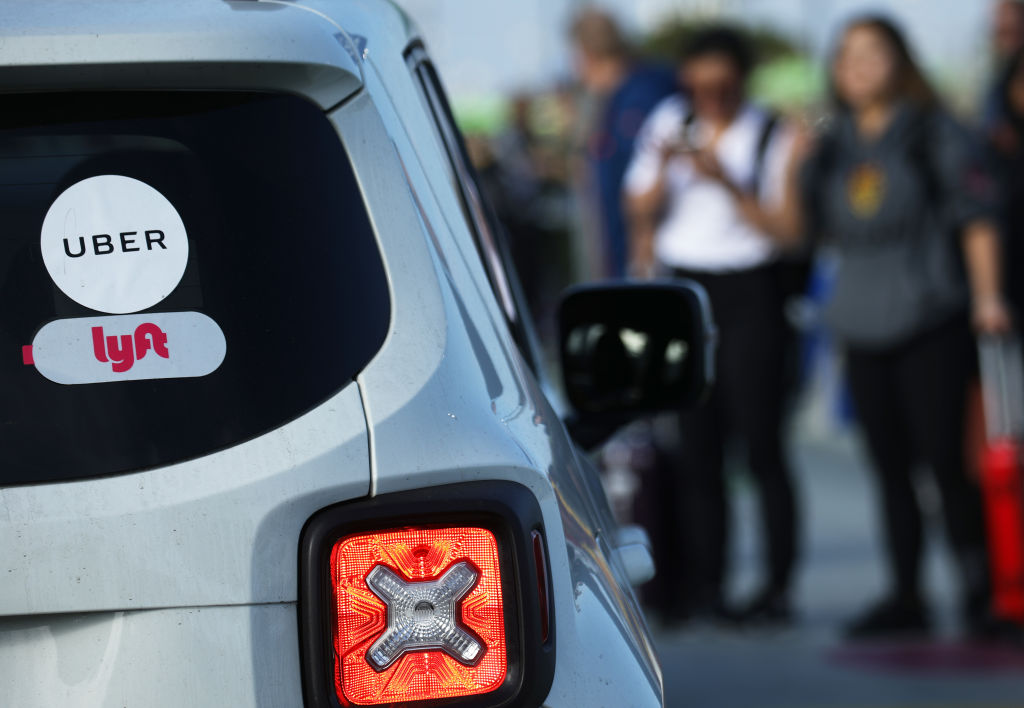Uber pledges to go all-electric by 2030 despite not owning its fleet


A free daily email with the biggest news stories of the day – and the best features from TheWeek.com
You are now subscribed
Your newsletter sign-up was successful
There's a big hitch in Uber's climate-focused plans.
The ride-sharing app announced Tuesday that its fleet of cars, bikes, and scooters in the U.S., Canada, and the EU would go fully electric by 2030, mirroring Lyft's similar pledge from June. But both Uber and Lyft don't even own the cars they want to make the switch, and drivers who say they're routinely underpaid by the service likely won't feel motivated to do so for them, Wired reports.
Uber CEO Dara Khosrowshahi called the company's Tuesday pledge part of its "clear responsibility to reduce our environmental impact," which includes rebuilding communities "for people, not cars," with "more green spaces and fewer parking spaces," he said. Promoting electric vehicles is a big part of that environmental goal, especially since the average Uber ride produces more emissions than just owning a car because a driver has to travel to pick a passenger up.
The Week
Escape your echo chamber. Get the facts behind the news, plus analysis from multiple perspectives.

Sign up for The Week's Free Newsletters
From our morning news briefing to a weekly Good News Newsletter, get the best of The Week delivered directly to your inbox.
From our morning news briefing to a weekly Good News Newsletter, get the best of The Week delivered directly to your inbox.
But the electric switch also comes at a cost for drivers. Small electric vehicles cost about $10,000 more upfront than gas cars, per Kelly Blue Book. That's a big price to pay for typical drivers, who don't consider Uber a full-time job and are using their personal cars to make ends meet. Uber is planning to address that by spending $160 million each year through 2025 on incentivizing drivers to switch, including by paying EV drivers an extra $1 for each trip they make. Riders can also soon choose to take a "green" ride in a cleaner vehicle for an additional cost.
Still, it's bound to be a hard sell for drivers who've protested Uber and Lyft over their payment structure and their constant refusal to accept drivers as actual employees. Read more at Wired.
A free daily email with the biggest news stories of the day – and the best features from TheWeek.com
Kathryn is a graduate of Syracuse University, with degrees in magazine journalism and information technology, along with hours to earn another degree after working at SU's independent paper The Daily Orange. She's currently recovering from a horse addiction while living in New York City, and likes to share her extremely dry sense of humor on Twitter.
-
 Democrats push for ICE accountability
Democrats push for ICE accountabilityFeature U.S. citizens shot and violently detained by immigration agents testify at Capitol Hill hearing
-
 The price of sporting glory
The price of sporting gloryFeature The Milan-Cortina Winter Olympics kicked off this week. Will Italy regret playing host?
-
 Fulton County: A dress rehearsal for election theft?
Fulton County: A dress rehearsal for election theft?Feature Director of National Intelligence Tulsi Gabbard is Trump's de facto ‘voter fraud’ czar
-
 TikTok secures deal to remain in US
TikTok secures deal to remain in USSpeed Read ByteDance will form a US version of the popular video-sharing platform
-
 Unemployment rate ticks up amid fall job losses
Unemployment rate ticks up amid fall job lossesSpeed Read Data released by the Commerce Department indicates ‘one of the weakest American labor markets in years’
-
 US mints final penny after 232-year run
US mints final penny after 232-year runSpeed Read Production of the one-cent coin has ended
-
 Warner Bros. explores sale amid Paramount bids
Warner Bros. explores sale amid Paramount bidsSpeed Read The media giant, home to HBO and DC Studios, has received interest from multiple buying parties
-
 Gold tops $4K per ounce, signaling financial unease
Gold tops $4K per ounce, signaling financial uneaseSpeed Read Investors are worried about President Donald Trump’s trade war
-
 Electronic Arts to go private in record $55B deal
Electronic Arts to go private in record $55B dealspeed read The video game giant is behind ‘The Sims’ and ‘Madden NFL’
-
 New York court tosses Trump's $500M fraud fine
New York court tosses Trump's $500M fraud fineSpeed Read A divided appeals court threw out a hefty penalty against President Trump for fraudulently inflating his wealth
-
 Trump said to seek government stake in Intel
Trump said to seek government stake in IntelSpeed Read The president and Intel CEO Lip-Bu Tan reportedly discussed the proposal at a recent meeting
